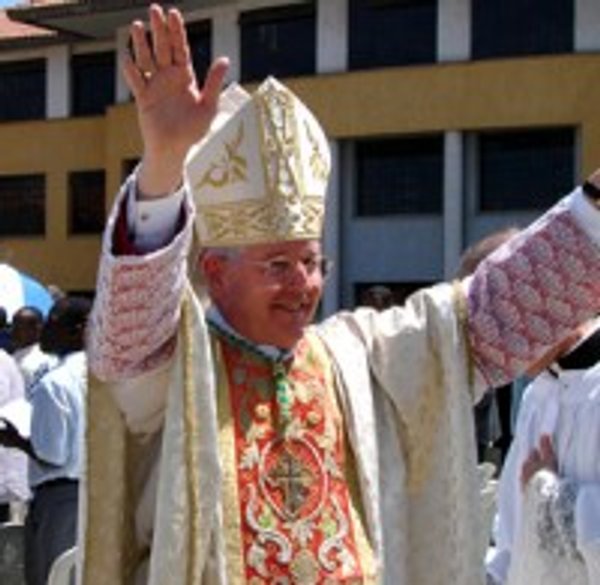The papal nuncio to Kenya His Excellency Archbishop Alain Lebeaupin celebrated Holy Mass in honor of Saint Josemaria Escriva the founder of Opus Dei on Saturday, 30th June 2007 at Strathmore university graduation square.
The nuncio reminded Christians that they have a responsibility to solve problems facing the world today. He noted the Catholic Church in Kenya is an instrument of unity and peace and added this would be clearer if the faithful live their faith well by exercising their responsibility in their daily tasks.
"The role of the Church is not just giving food and health services but also sharing its faith since it works for eternal salvation of mankind," the nuncio said. Noting that the Church is one, the nuncio hailed the work that Opus Dei is doing in the country in the areas of education and the spiritual direction of both the laity and priests. He pointed out the Strathmore as an example of this role. The spiritual and doctrinal orientation of the university is entrusted to Opus Dei. Opus Dei started working in Kenya 50 years ago next year.
"Saint Josemaria reminded the Church that the whole human person and not just the man's spiritual dimension are of interest to God and should be at the service of God and the world," the nuncio observed. He went on to say we should not remember God only when we need him but we should continue to have faith even when no results are forthcoming. The passage of the gospel where St Peter told Jesus, "we worked hard all night and caught nothing, but … I will pay out the nets" was an example of faith at work.
"Christians should continue to work even when they cannot see the results as Saint Peter did on that occasion. This is pertinent especially today when the faith is much more challenged than before.
"It is a mystery of faith that is evident even in the life of Jesus Christ that failure in human eyes leads is to success in the supernatural sphere. Jesus disciples might have thought his most successful moment was his triumphant entry in Jerusalem. However, Jesus won salvation for the world at his weakest moment – when he was humiliated and died on the cross, the nuncio observed.
"He noted Christianity has a future in Africa owing to the continents deep spiritual roots and urged the faithful not to be afraid but put out their nets into the depths of faith as Saint Peter did in that passage. "Man has mastered the world more than ever before through progress in technology. This masterly is good. But there is a notion in some circles that man is God and that is false," the nuncio said.
Alluding to the fact that Christianity has contributed a lot to the basis of material progress witnessed in the world today, the nuncio urged Christians not to dwell in the past but to live today and work for the future.
He also reminded Christians that it is not possible to be holy without recognizing their sinfulness. "Recognition of sin is important if we want to be holy. The Church reminds Christians of their sins and the need to be sorry for them as is evident in the Mass and other prayers of the Church starting with the Lord's Prayer where Jesus taught his followers to ask for pardon for their sins..."
"This recognition of sinfulness is even more necessary today when there are so many distractions all around us. It is also a sign of holiness as is evident in the gospel passage. When Peter witnessed the miraculous fish, he recognized his sinfulness and cried out, "leave me alone, for I am a sinful man'."
Saint Josemaria used to describe himself as a sinner who loved God madly. Concelebrants at the Mass included the regional Vicar of Opus Dei in East Africa Monsignor Albert Pampillon and Strathmore University chaplain Fr Paul Mimbi among other priests.
